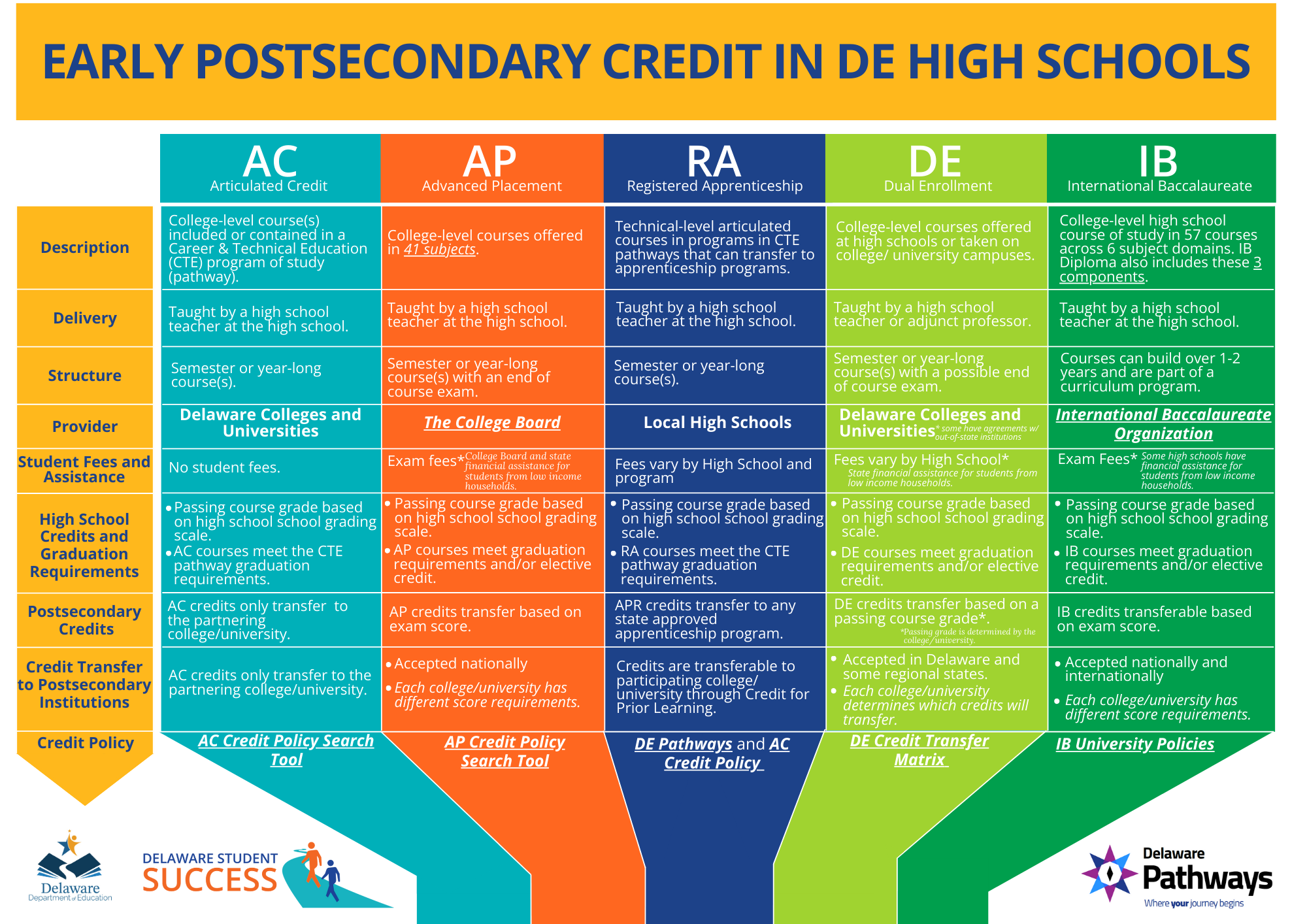Continue on Your Path to Success by Earning College Credits Early
What is an Early College Credit Course?
College-level courses that high school students take at their high school or at a local college campus. Successful completion of an early college credit course provides transferable college credits.
What are the different types of Early College Credit Courses?
- Articulated Credit– Classes at high school that are taken as part of a CTE pathway sequence of courses.
- Advanced Placement- Classes at the high school, followed by a test that may count for college placement or credit
- Dual Enrollment- Classes at the high school that count as both high school and college credit. These may be academic classes like Writing or Math or technical CTE classes like Business or Nursing.
- International Baccalaureate- A series of classes at the high school, followed by a test that may count for college placement or credit
Want to earn college credit in high school? Check out Early College Credit Courses!
Delaware schools offer a variety of opportunities for Delaware students to take college-level courses in high school. Benefits:
- Exposure to rigorous, advanced coursework
- Encourage good academic habits and new skills
- More likely to complete a college degree or credential
- Develop career-ready skills
What type of college credit can I earn from Early College Credit Courses?
- Articulated Credit– Successful completion of an articulated credit course will directly transfer college credit to the host college/university. These credits do NOT transfer to any other college/university.
- Advanced Placement- Use the AP Credit Policy Search to find colleges/universities that offer credit or placement for AP scores. Beginning August 1, 2024, all public colleges and universities in Delaware must accept AP scores of 3+ for credit.
- Dual Enrollment- Use the Dual Enrollment Credit Transfer Matrix to see which colleges/universities offer transfer credits for dual enrollment classes taken in high school.
- International Baccalaureate- IB works with some universities to develop recognition policies that set out an institution’s requirements for IB students. Find universities with published recognition policies. Universities without published recognition policies may still accept students with IB credentials
What schools offer Early College Credit Courses?
Most high schools publish a course catalog that students can use to view the different courses offered at their high school. After reviewing these, students should meet with their school counselor to determine which early college credit courses are the best fit for them.
Where can I learn more about Early College Credit Programs?
- Articulated Credit
- Advanced Placement
- Dual Enrollment
- Reach out to your school counselor to see what dual enrollment courses your school offers. You can also learn more about Delaware colleges and universities that offer dual enrollment.
- International Baccalaureate


